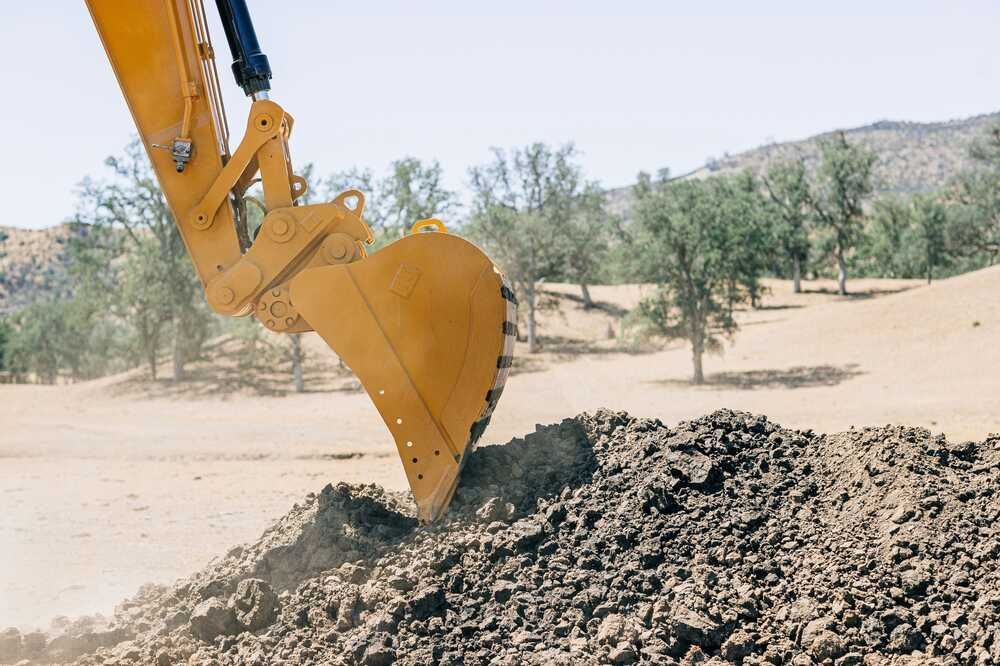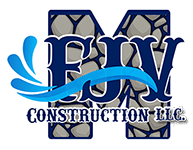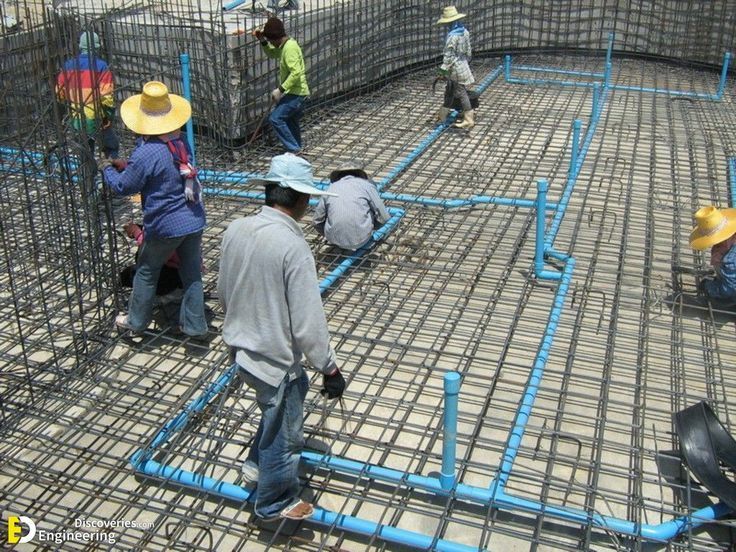How Expert Excavation Service Sets the Stage for Successful Pool Construction
Site preparation lays the groundwork for every successful construction project—and excavation is its most critical first step. Whether you’re building a new home, commercial facility, or custom pool, expert excavation ensures the ground is stable, level, and capable of supporting the structure. Without professional excavation services, projects risk costly delays, structural failures, and persistent drainage issues.
Here are five key reasons why professional excavation is essential to getting your project off to the right start.
Table of Contents
- Key Takeaways
- 1. Ensures a Strong and Stable Foundation
- 2. Improves Drainage and Prevents Water Damage
- 3. Creates a Solid Base for Custom Pool Digging and Ground Preparation
- 4. Supports Construction on Sloped and Uneven Landscapes
- 5. Ensures Efficient Utility Installation
- How Professionals Evaluate a Site Before Excavation
- How to Select the Right Excavation Professionals for the Job
- How Professionals Plan Excavation for Multi-Phase Projects
- Frequently Asked Questions (FAQs)
- Get Expert Excavation Services with FJV Construction in Danbury, CT
Key Takeaways
✔ A strong foundation begins with proper excavation—leveling, compacting, and clearing the site to prevent shifting and structural issues.
✔ Professional excavation improves drainage by grading the land and installing systems that protect against water damage.
✔ Custom pool digging requires precision in depth and slope to prevent leaks and ensure long-term stability.
✔ Excavation on sloped or uneven terrain involves terracing, retaining walls, and erosion control to create a stable platform.
✔ Expert trenching and soil management ensure safe, accurate utility installation.
✔ Thorough site evaluation identifies soil conditions, underground utilities, and drainage concerns before work begins.
✔ Strategic excavation planning prevents delays and supports smooth, multi-phase construction.
1. Ensures a Strong and Stable Foundation
A strong foundation is essential for any construction project, and proper excavation sets the stage for long-term structural integrity. Poor site preparation can lead to shifting, cracking, and foundation failure, which are expensive and difficult to fix. Professional excavation service ensures that the site is level, compacted, and free of debris, creating a solid base for construction.
How Professionals Create a Stable Foundation
- Site Evaluation and Soil Testing: Professional excavation teams assess the site’s soil composition and stability before digging. This helps identify issues like loose soil, clay, or groundwater, allowing them to adjust excavation depth and methods to ensure proper support.
- Compaction and Grading: Once the site is cleared, professionals use heavy equipment to compact the soil and level the ground. Proper grading prevents water from pooling near the foundation, reducing the risk of erosion and structural damage over time.
- Removal of Debris and Obstructions: Rocks, tree roots, and underground obstacles can weaken the foundation if left in place. Professional excavation services carefully remove these materials, ensuring a clean and solid surface for construction.
2. Improves Drainage and Prevents Water Damage
Effective drainage is crucial for protecting the structural integrity of any building or outdoor feature. Poor drainage can cause water to pool around the foundation, leading to soil erosion, mold growth, and structural weakening. Professional excavation service creates a well-planned drainage system that directs water away from the site, protecting the foundation and surrounding landscape.
How Professionals Improve Drainage
- Strategic Grading and Sloping: Excavation teams carefully grade the site to create a slight slope that directs rainwater and runoff away from the foundation. This prevents water from pooling near the structure, which reduces the risk of foundation cracks and flooding.
- Installing Drainage Systems: Professionals install underground drainage pipes, French drains, and dry wells to manage water flow. This ensures that excess water is properly channeled away from the site, reducing soil saturation and preventing foundation shifting.
- Soil Composition Adjustments: Certain soil types, like clay, retain water and can cause instability. Excavation services often involve replacing or mixing soil types to improve drainage, ensuring that water flows away from the site rather than pooling beneath the foundation.

3. Creates a Solid Base for Custom Pool Digging and Ground Preparation
Custom pool digging and ground preparation require precise excavation to ensure proper depth, alignment, and support. Pools are heavy structures, and uneven excavation can cause long-term issues like cracking, leakage, and instability. Professional pool excavation services ensure that the site is properly prepared to support the weight and structure of the pool.
How Professionals Prepare Sites for Pools
- Precision Depth and Slope Management: Excavation teams use laser-guided equipment to measure and adjust the pool's depth and slope accurately. This ensures that the pool walls and floor are even, reducing the risk of pressure points that can lead to cracks.
- Soil Stabilization: After digging, professionals compact the soil and reinforce it with gravel or concrete to create a stable base. This prevents shifting and sinking, which could compromise the pool's structural integrity over time.
- Managing Water and Drainage Around the Pool: Professional pool excavation services include creating proper drainage channels to prevent water from collecting around the pool. This helps protect the pool walls and prevents erosion beneath the pool structure.
4. Supports Construction on Sloped and Uneven Landscapes
Building on a sloped or uneven site presents unique challenges that require expert excavation techniques. Without proper preparation, soil erosion and shifting can cause foundation cracks and structural failure. Professional excavation for sloped and uneven landscapes ensures that the site is level, stable, and capable of supporting the project.
How Professionals Handle Sloped and Uneven Landscapes
- Terracing and Step Excavation: On steep slopes, professionals create a series of steps or terraces to reduce soil movement and create flat building platforms. This helps prevent soil erosion and shifting over time.
- Retaining Walls and Soil Reinforcement: Excavation services often include installing retaining walls and reinforcing soil with geotextile fabric or gravel. These structures hold back soil and prevent collapse, ensuring long-term stability.
- Water Runoff Management:
Sloped landscapes are prone to runoff, which can weaken foundations. Professionals create diversion channels and install drainage systems to direct water away from the site, preventing soil erosion and foundation damage.
5. Ensures Efficient Utility Installation
Proper utility installation is essential for modern construction projects, and excavation sets the groundwork for efficient and safe utility placement. Poorly planned utility installation can lead to costly repairs and disruptions. Professional excavation services ensure that utilities like water, gas, and electrical lines are installed correctly and safely.
How Professionals Handle Utility Installation
- Trenching and Underground Mapping: Excavation teams carefully dig trenches for utility lines while avoiding existing infrastructure. They use mapping tools to identify underground cables and pipes, reducing the risk of accidental damage.
- Proper Depth and Insulation: Utilities need to be installed at specific depths to prevent freezing, damage, and interference. Professional excavation services ensure that trenches are deep enough and lined with protective materials to meet local building codes.
- Backfilling and Soil Compaction:
After utilities are installed, professionals backfill the trenches with compacted soil to prevent settling and shifting. This helps protect the utility lines from damage and ensures long-term stability.
How Professionals Evaluate a Site Before Excavation
The Excavators industry is projected to grow from USD 49.6 billion in 2024 to USD 73.82 billion by 2032, highlighting the increasing demand for excavation services. A thorough site evaluation is essential before any project begins to ensure its success. Professional excavation teams assess various factors, from soil composition to existing infrastructure, to identify potential challenges and create a detailed excavation plan.
This step minimizes risks, improves efficiency, and ensures that the excavation site is prepared to handle the demands of the project, whether it's residential and commercial excavation work or custom pool digging and ground preparation.
1. Conducting a Topographical Survey
Professionals start by conducting a topographical survey to map the site’s elevation, slope, and contours. This helps determine how the site will respond to excavation and where grading adjustments are necessary. For custom pool digging and ground preparation, accurate topography ensures that the pool base is level and capable of supporting the structure without shifting.
2. Testing Soil Composition and Stability
Soil composition plays a major role in excavation and construction. Professionals collect soil samples and analyze them for factors like clay content, moisture levels, and bearing capacity. If the soil is loose or unstable, excavation teams may reinforce it with gravel or adjust the excavation depth to create a stable base for residential and commercial excavation work.
3. Identifying Underground Utilities and Infrastructure
Before excavation begins, professionals use ground-penetrating radar (GPR) and utility maps to locate underground pipes, cables, and other infrastructure. Accidentally damaging utility lines can lead to project delays, costly repairs, and safety hazards. Proper identification allows excavation teams to work around these obstructions or reroute them if necessary.
4. Evaluating Drainage and Water Table Levels
Water levels beneath the surface can significantly impact excavation and construction. Professionals measure the water table and assess the site’s natural drainage patterns to prevent water from accumulating under foundations or pool structures. Proper drainage planning ensures that water flows away from the site, protecting both the excavation work and the finished structure.
5. Clearing Vegetation and Surface Obstructions
Trees, shrubs, and large rocks can interfere with excavation and site stability. Professional excavation services include clearing these surface obstructions while preserving any protected vegetation. For residential and commercial excavation work, proper clearing creates a clean, accessible site, which improves efficiency and prevents damage to equipment.
6. Assessing Environmental Impact and Permit Requirements
Many excavation projects require environmental assessments and permits before work can begin. Professionals review local regulations to determine if excavation will impact nearby wetlands, protected areas, or water sources. Securing the proper permits and following environmental guidelines ensures that excavation services are compliant and avoid legal issues.
How to Select the Right Excavation Professionals for the Job
Choosing the right excavation service is essential for the success of any construction project, with costs ranging from $100 an hour for small jobs to over $500 for larger projects. Skilled excavation professionals ensure that the site is prepared correctly, which reduces the risk of structural issues, poor drainage, and project delays. Whether the project involves residential and commercial excavation work or custom pool digging and ground preparation, selecting experienced professionals can make all the difference in long-term stability and efficiency.
1. Look for Proven Experience in Similar Projects
Experience matters when it comes to excavation work. Professionals with a strong track record in residential and commercial excavation work are better equipped to handle complex site conditions and unexpected challenges. For custom pool digging and ground preparation, experienced teams know how to manage depth, slope, and soil stability to prevent future issues.
2. Verify Licensing, Insurance, and Certifications
Reputable excavation companies should be fully licensed and insured. Licensing ensures that the company meets industry standards and follows local regulations, while insurance protects against accidents and damage during the project. Certification in specific services, such as professional pool excavation services, demonstrates expertise and a commitment to quality work.
3. Assess Equipment and Technology Capabilities
Excavation projects require specialized equipment like excavators, trenchers, and grading machines. Professional excavation teams should have access to modern, well-maintained equipment that matches the project’s scope. Advanced technology, such as GPS-guided systems, allows for precise grading and excavation for sloped and uneven landscapes.
4. Request References and Portfolio of Past Work
A reputable excavation company should be able to provide references from previous clients and a portfolio of completed projects. Reviewing similar residential and commercial excavation work gives insight into the company’s ability to handle specific challenges and deliver quality results. For custom pool digging and ground preparation, seeing examples of precise and clean finishes is particularly valuable.
5. Evaluate Their Understanding of Soil and Site Conditions
Excavation professionals should have a thorough understanding of soil types, water tables, and site drainage issues. A knowledgeable team will adjust excavation techniques to account for clay, rock, sand, or uneven ground. This expertise is critical for the excavation of sloped and uneven landscapes, where soil shifting can cause long-term structural problems.
6. Consider Their Ability to Manage Project Timelines and Communication
Effective project management and communication are key indicators of a reliable excavation team. Professionals should provide clear timelines, regular progress updates, and immediate responses to any issues that arise. Timely completion is especially important for professional pool excavation services, where delays can disrupt the broader construction schedule.

How Professionals Plan Excavation for Multi-Phase Projects
Excavation for multi-phase projects requires strategic planning to ensure that each phase is completed in the correct order without disrupting future work. Professional excavation teams create a detailed plan that accounts for site conditions, utility placement, and construction sequencing. This type of structured approach minimizes delays and ensures that the excavation service supports the overall success of residential and commercial excavation work, including custom pool digging and ground preparation.
1. Creating a Phased Excavation Timeline
Professionals start by developing a phased timeline that outlines the excavation stages and their dependencies. For example, foundation excavation may be completed first, followed by trenching for utilities and drainage. This approach ensures that each phase is completed in the correct order, reducing the risk of rework or structural issues.
2. Coordinating Excavation with Other Trades
Excavation teams work closely with electricians, plumbers, and general contractors to align excavation work with other phases of the project. For example, professional pool excavation services may require coordinating with pool builders and landscape designers to ensure proper site preparation. This teamwork prevents conflicts and ensures that all work progresses smoothly.
3. Preparing for Changing Site Conditions
Soil and weather conditions can change between phases, especially on longer projects. Professionals account for seasonal changes and shifting soil conditions when planning excavation for sloped and uneven landscapes. Adjustments may include additional grading, drainage modifications, or reinforcement to maintain site stability.
4. Managing Equipment and Site Access
Proper equipment staging and site access planning prevent congestion and delays during multi-phase excavation. Excavation teams position heavy machinery strategically to allow other trades to work efficiently. This is especially important for residential and commercial excavation work, where space limitations and access routes need to be carefully managed.
5. Implementing Temporary Drainage and Erosion Control
During multi-phase projects, temporary drainage and erosion control measures are essential to protect the site between excavation stages. Professionals install silt fences, drainage channels, and temporary grading to prevent water buildup and soil erosion. This ensures that site conditions remain stable for the next phase of construction.
6. Monitoring and Adjusting the Plan as the Project Progresses
Excavation teams continuously monitor site conditions and project progress throughout all phases. If unexpected issues arise, such as unstable soil or underground obstructions, professionals adjust the excavation plan to prevent delays. This flexibility ensures that residential and commercial excavation work stays on schedule and meets quality standards.
Frequently Asked Questions (FAQs)
What permits are required for excavation work?
The permits required for excavation service depend on local regulations and the scope of the project. For residential and commercial excavation work, permits may be needed for grading, trenching, and utility work. Professional excavation companies typically handle the permitting process to ensure compliance with building codes and environmental guidelines.
How does weather affect excavation projects?
Weather conditions like heavy rain, snow, and freezing temperatures can delay excavation work and affect soil stability. Wet soil becomes more difficult to compact, which can lead to uneven foundations and poor drainage. Professional excavation services often adjust schedules and techniques based on weather conditions to maintain project integrity.
What safety measures are used during excavation?
Excavation teams follow strict safety protocols to prevent accidents and structural failures. This includes using trench boxes for deep trenches, reinforcing excavation walls to prevent collapse, and securing the site with barriers and signage. Professional excavation services also require workers to wear personal protective equipment (PPE) and follow OSHA guidelines.
Can excavation be done on sites with existing structures nearby?
Yes, excavation can be performed near existing structures with proper planning and equipment. Professional excavation services use precision tools and techniques to avoid damaging foundations, utilities, and landscaping. Protective barriers and monitoring systems are often used to prevent soil shifting and structural damage.
How long does excavation work usually take?
The length of an excavation project depends on the size, soil conditions, and complexity of the site. Residential and commercial excavation work for foundations may take a few days to a week, while custom pool digging and ground preparation can take longer, especially for complex designs. Professional excavation services provide detailed timelines based on site evaluations and project requirements.
Get Expert Excavation Services with FJV Construction in Danbury, CT
FJV Construction is the trusted choice for professional excavation services in Danbury, CT. From residential and commercial excavation work to custom pool digging and ground preparation, FJV Construction delivers precision, efficiency, and unmatched expertise. Whether handling complex sloped and uneven landscapes or preparing sites for multi-phase projects, FJV Construction ensures that every job is completed to the highest standard.
Contact FJV Construction today to schedule a consultation and get your project started on solid ground.
Our Info
Monday to Friday from 7 am to 6 pm
Saturdays from 8 am to 5 pm
We Accept Cash and Checks
LOCATION
We Cover 80 Miles around Bethel,
Danbury, and Brookfield
Bethel, Connecticut 06801
Danbury, Connecticut 06810
Brookfield, Connecticut 06804
Navigation
Copyright FJV Construction, All Rights Reserved



